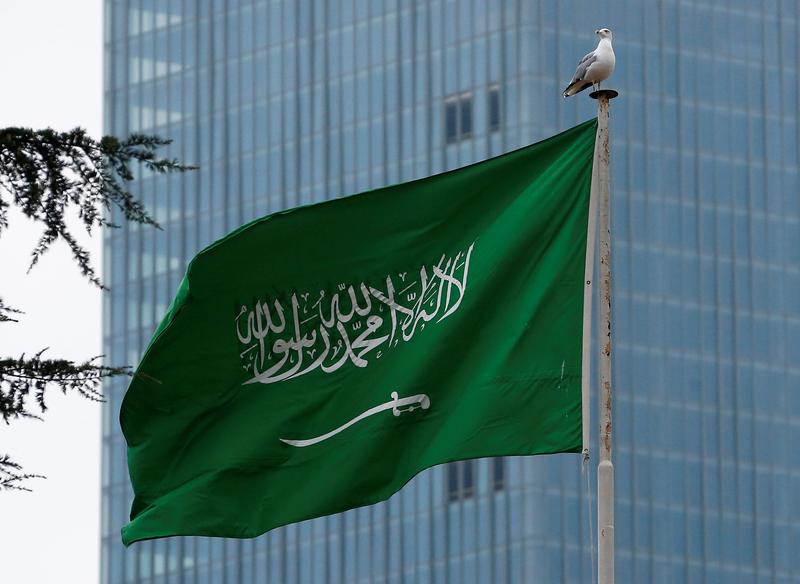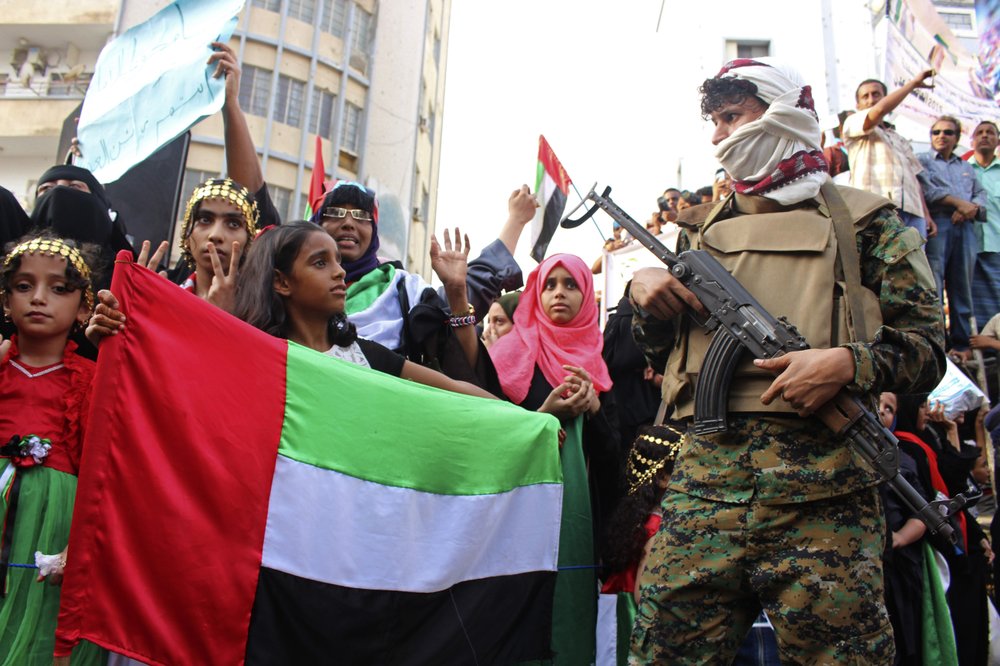Sanaa–Yemeni government officials confirmed on Monday embattled President Ali Abdullah Saleh remains in stable condition and will return from Saudi Arabia – where he continues to seek medical treatment for wounds sustained during a 4 June attack on his presidential palace – once all necessary surgeries are completed.
Opposition members and defected military figures, however, say his introduction back into war-torn Yemen’s political scene will trigger an upsurge in violence. Some, moreover, expressed skepticism over official expectations of Saleh’s return to the country mired in five months of protests and strife.
The government’s pledge that Saleh, strongman of 33 years, is healthy contradicts reports widely circulated in Yemen’s local media on Monday, claiming he died from the injuries. The reports were disseminated by France 24 television, publicizing information purportedly relayed by Israeli intelligence.
“His return is inevitable,” Ahmed al-Sofi, the president’s information secretary, told Al-Masry Al-Youm, dismissing such reports. “[It] depends only on the details the plastic surgery doctors give.”
But Yemenis have taken to the streets several times during the past week to demand Saleh abdicate power. “Don’t return!” independent youth protesters shouted as they marched to acting president Abdu Raboo Mansour Hadi’s house on Wednesday. The youths – those responsible for sparking the protest movement – urged Hadi to form a transitional council geared towards blocking Saleh’s return.
Hadi agreed on Monday to begin discussions with the opposition aimed at a transfer of power accord, according to opposition spokesman Abdullah Oubal. Saleh has agreed to such deals in the past, only to avoid officially endorsing them at the last minute.
Political analyst Ahmed al-Zurqa told Al-Masry Al-Youm Saleh’s true condition is being concealed from the public in order to bide time to find a suitable replacement.
“I don’t think there is any chance he will return,” said Zurqa. “So far there is no confirmation on his health condition; no evidence that he is in a good condition to return.”
Zurqa says Saleh’s return spells civil war, claiming it’s in the interest of everyone involved for Saleh to stay in Saudi Arabia. Sofi, on the other hand, says violence in Yemen continues to wage unabated and the president’s return will usher stability back to the nation.
“The war against the state hasn’t stopped,” said Sofi. “[Sheikh Sadiq] al-Ahmar is still armed in the capital and poses a danger to the citizens. With the president’s return, we expect them [Ahmar’s men] to turn themselves into the state.”
Many residents of Sanaa, Yemen’s capital, disagree, citing a lull in attacks during Saleh’s absence. A fragile truce between state-affiliated forces and those loyal to tribal leader Ahmar was reinstated on 5 June after a previous collapse.
“If he came back, then the war is back,” said Sanaa resident Ali Saeed. “The war stopped only when he left.“
But Sofi says the situation in the capital is even worse now, although the truce remains valid.
“The assassination attempt changed everything. Until we know for sure who was behind it, we can’t say the situation will be any better,” he said. “We are waiting for the Yemeni and US experts to give us more information on their investigation into who supplied the attack. The rocket that was used is rare and can’t be found in the Yemeni military.”
Sofi says the government will have to launch a sizeable combat effort in the near future to suppress provincial armed tribes, Ahmar loyalists, Islamist militants in Abyan Governorate and those responsible for both blocking roads outside urban areas and sabotaging power conduits.
“The idea of a civil war is far away now but if the ‘former’ president wants to come back then he will try to fuel the situation to a civil war,” said defected Major Colonel Abdul Asalam al-Aliani, adding that Saleh and his family are safest outside of Yemen. “He tried desperately earlier to ruin the country but he failed. He distributed money and weapons to thugs.”
Gunfire celebrating Saleh’s supposed successful surgery last Wednesday night filled the air in urban areas throughout Yemen. Many residents mistook the salvo for a return to the fray. The random gunfire did, however, claim at least six lives and wound 59.
“We thought it was war,” said one Sanaa resident. “We tried to find an exit but, at that exact moment, we couldn’t think of any place in Sanaa that was safer than where we were.”
Meanwhile, the Joint Meeting Parties (JMP), Yemen’s foremost opposition bloc, criticized the youth march on the house of acting president Hadi. Opposition leaders and Hadi, who state officials say still receives orders from Saleh, convened behind closed doors on Monday to hash out the elusive deal to oust Saleh.
But Zurqa claims such negotiations can only achieve so much.
“The JMP lost their control over the situation. There is strong pressure on them from the US and Saudi, which will limit the revolution’s success,“ said Zurqa. “However there is enough risk with siding against the revolution…if saleh thinks of coming back, it means only war.“




